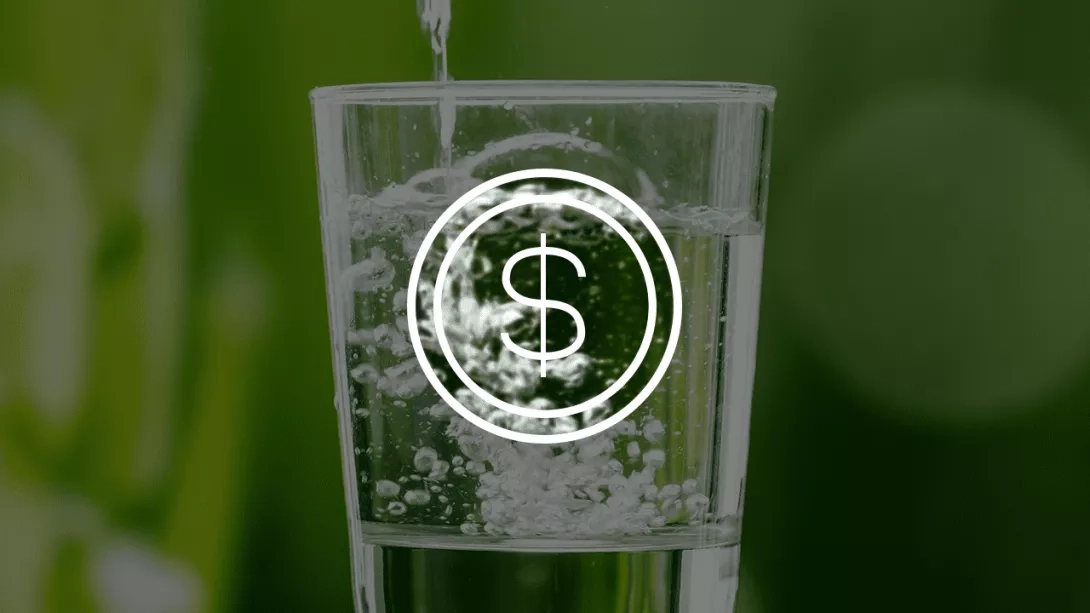Access to clean and safe drinking water is essential for maintaining good health and well-being. With concerns about waterborne contaminants on the rise, many homeowners are turning to water filtration systems for their domestic needs. Among the various options available, reverse osmosis (RO) systems have gained popularity for their effectiveness in removing impurities and delivering high-quality drinking water.
However, before making the decision to invest in a reverse osmosis system, it is crucial to have a comprehensive understanding of the associated costs and the key factors to consider. To assist you in improving the quality of life for both yourself and your loved ones, we have prepared this informative article about the cost of Reverse Osmosis Systems.
Factors Affecting the Cost of a Reverse Osmosis System
RO Water filtration systems for homes have become increasingly popular due to the growing awareness of water quality issues. Reverse osmosis is a process used in water purification at home that employs a semi-permeable membrane to remove impurities. It is particularly effective in eliminating contaminants such as dissolved salts, heavy metals, pesticides, and bacteria, providing clean and safe drinking water for households.
When it comes to the cost of reverse osmosis water filters, several factors come into play. The price can vary depending on the brand, model, features, and capacity of the system. Additionally, installation and maintenance expenses should be taken into account.
- Filter components and features play a significant role in determining the cost of a RO system. Some models may include additional filtration stages, such as sediment filters, carbon filters, and post-carbon filters, to enhance the purification process. These added features can increase the overall price of the filter. Additionally, the capacity of the system, measured in gallons per day, can affect the cost. Filters with higher capacities generally come at a higher price point.
- Water filter installation is another cost to consider. While some homeowners may choose to install the system themselves, professional installation services are available for those who prefer expert assistance. Professional installation ensures proper placement, connection, and optimal performance of the system, but it comes at an additional cost.
- Filter maintenance and replacement. The system's filters need to be replaced periodically to maintain their effectiveness. The frequency of filter replacement depends on the quality of the source water and the manufacturer's recommendations. It's important to factor in the cost of replacement filters when considering the overall expense of a reverse osmosis system.
While the initial cost of a reverse osmosis filters may seem high, it is important to note that it can provide cost-effective water filtration in the long run. By having access to clean drinking water at home, you can potentially save money on bottled water purchases and reduce your carbon footprint.
Importance of Water Quality Assessment
In addition to considering the cost, it is also important to assess water quality before investing in a RO water filter. Conducting water quality assessments can help determine the specific contaminants present in your water and guide you in choosing the right filtration method. Understanding the specific needs of your household will help you select the appropriate system that suits your requirements and budget.
When troubleshooting water filter issues, it is advisable to consult the manufacturer's guidelines or seek professional assistance. Regular maintenance and timely replacement of filters are essential for optimal performance and longevity of the filter.
Choosing the Right Water Filter for Your Home
In conclusion, the cost of a reverse osmosis system for domestic use varies depending on factors such as brand, model, features, and capacity. Installation, maintenance, and filter replacement expenses should also be taken into account. Despite the initial investment, a reverse osmosis system offers cost-effective water filtration, ensuring clean and safe drinking water at home. While the cost of a reverse osmosis system may seem like a significant investment, it is crucial to prioritize the quality of your drinking water. By comparing different options and considering your specific needs, you can choose a system that provides optimal performance and peace of mind. At Ecosoft, we offer a wide range of Domestic Reverse Osmosis Water Filters that provide clean and safe drinking water to meet your needs.
Remember, safe drinking water is priceless, and investing in it is an investment in your health and well-being.
Faqs
Can I install a reverse osmosis system myself to save money?
While it is possible to install a reverse osmosis system yourself, it is generally recommended to have it installed by a professional. Proper installation is crucial for the system to function optimally and ensure the quality of the water produced. Additionally, if you're not familiar with plumbing or have limited DIY experience, it's best to consult a professional to avoid any potential issues or damage.
Are there any ongoing maintenance costs for a reverse osmosis system?
Yes, reverse osmosis systems require regular maintenance to ensure their efficiency and longevity. The main maintenance cost is the replacement of filters, which typically need to be changed every 6 to 12 months, depending on the specific system and water quality. The cost of filter replacements can vary but generally falls within the range mentioned earlier, between $50 and $150 annually. It's important to factor in these ongoing maintenance costs when considering the overall cost of a reverse osmosis system.
Are there any additional costs associated with a reverse osmosis system?
In addition to the initial cost of the system, there might be some additional costs to consider. These can include the cost of professional installation if you choose to hire a plumber or technician. Furthermore, you may need to factor in the cost of periodic filter replacements, which usually range from $50 to $150 annually, depending on the number and type of filters required by your specific system.
What is the average cost of a reverse osmosis system?
The cost of a reverse osmosis system can vary depending on various factors such as the brand, quality, features, and capacity of the system. On average, you can expect to pay between $200 and $800 for a residential reverse osmosis system. However, high-end systems with advanced features can cost even more.








